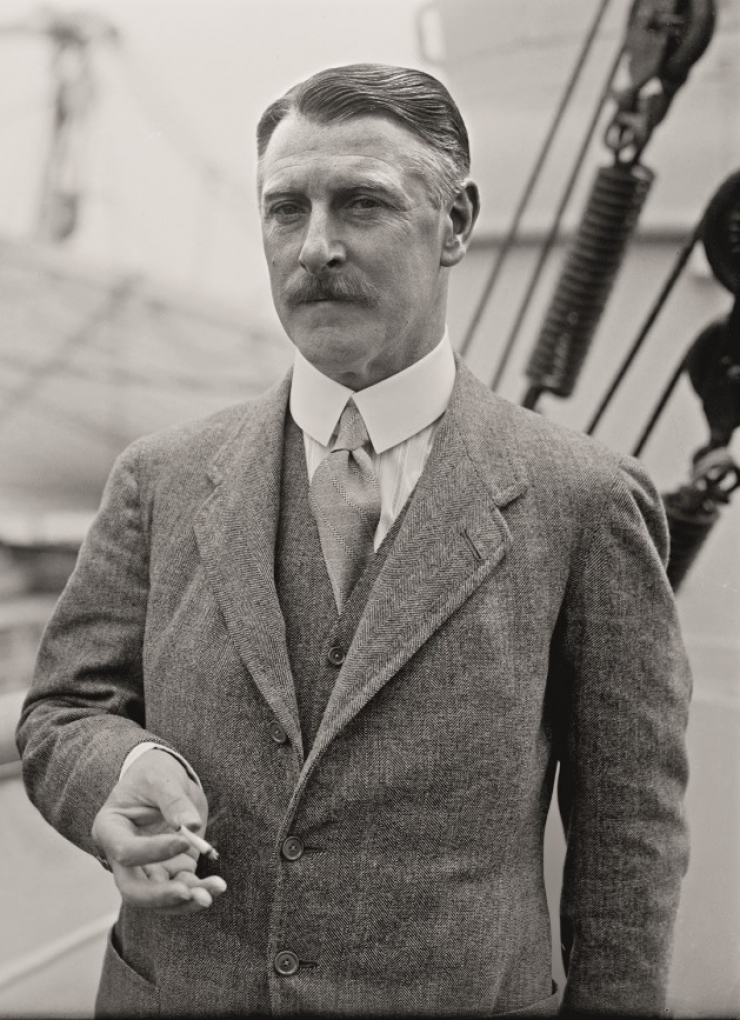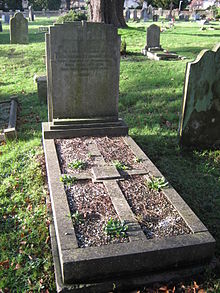Cecil Herbert Edward Chubb
1876 – 1934

Cecil Herbert Edward Chubb came from modest beginnings. Born in 1876 in the village of Shrewton, Wiltshire, 4 miles west of Stonehenge,
the eldest son of Alfred and Mary Chubb. "Fred" was the village saddler and harness maker, as was his father before him. He
attended the local village school and then Bishop Wordsworth's School in Salisbury, where from the age of 14 he worked for a time
as a student teacher.
He met his future wife at a cricket game between his Bishop Wordsworth School and Fisherton House Asylum. He then attended Christ's
College, Cambridge where he earned a first in science in 1904 followed by a Bachelor of Laws degree in 1905, before he began to practice
law. He became a barrister and amassed a considerable fortune
In 1902 Chubb married Mary Finch, and after her uncle died, she inherited the Fisherton House Asylum psychiatric hospital near Salisbury.
Chubb gave up law to run the asylum, which was one of the largest in the country, introducing

Cecil Herbert Edward Chubb
1876 – 1934

innovative treatments to make the patients' lives easier and return them to their families.
Stonehenge ‐ Until 1918, Stonehenge was private property. Interest in it was stimulated in the
early 1700s through the writings of early Freemason Dr William Stukeley, a clergyman and archaeologist. The connection between Stonehenge
and the druids is usually ascribed to Stukeley, who not only made a study of the order but was also one of those responsible for its
revival in 1717.
By the early 1800s, Stonehenge was owned by the Antrobus family, but when the heir to the baronetcy was killed in action in 1915, the
family decided to sell the stone circle and its 35 acres of land at auction.
 The sale took place at the New Theatre in Salisbury on 21 September 1915. The purchaser was Cecil Chubb, who paid £6,600 (about £460,000
in modern terms) for the site. He had gone to the auction to buy some chairs but having lived near Stonehenge for much of his life,
decided to make the purchase to save it from a foreign buyer. Chubb bought the landmark as a gift for his wife, for which he was
apparently not thanked.
The sale took place at the New Theatre in Salisbury on 21 September 1915. The purchaser was Cecil Chubb, who paid £6,600 (about £460,000
in modern terms) for the site. He had gone to the auction to buy some chairs but having lived near Stonehenge for much of his life,
decided to make the purchase to save it from a foreign buyer. Chubb bought the landmark as a gift for his wife, for which he was
apparently not thanked.
In 1918, knowing there was government interest in the stone circle, Chubb contacted what was then the Office of Works and offered to give
the site to the nation as a gift. He had three provisos: Salisbury residents should have free access to it; the entry charge should never
be more than a shilling; and no building should be erected within 400 yards of the ancient stones.


The government accepted the gift with alacrity, and to mark his generosity, created a baronetcy: in 1919, Chubb took the title Sir Cecil
Chubb, Baronet of Stonehenge in the County of Wiltshire.
Sir Cecil Chubb came into Freemasonry in Salisbury, where he was made a mason in Lodge Elias de Derham, No. 586, on 26 October 1905.
He never sought office in the lodge or took part in any of the other orders of Freemasonry, being content to simply enjoy the company
of his fellow lodge members as a backbencher, and remaining a subscribing member until his death.
There have been attempts to link Freemasonry with both the stone circle at Stonehenge and the druids who were reputed to have worshipped
there. In reality, the only masonic connections are the figures of Stukeley, who did so much to bring Stonehenge to public notice, and
Chubb, who had so much love for the stone circle that he bought and presented it to the nation so it would be preserved as a part of his
country's national heritage.


